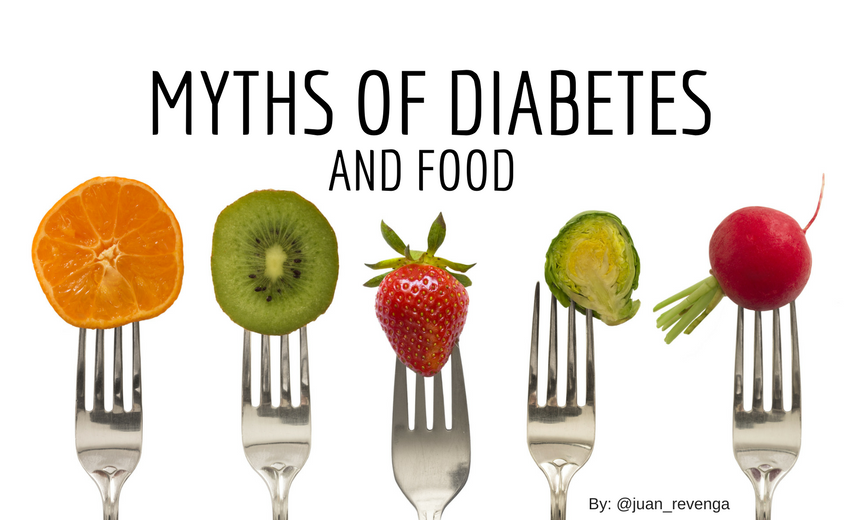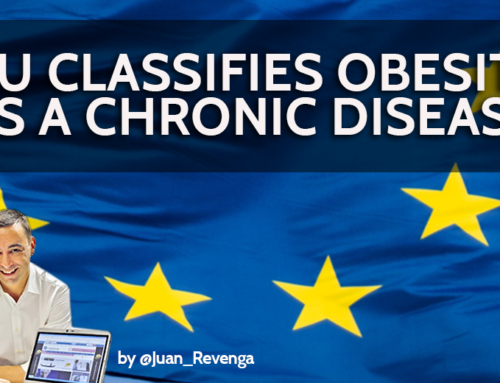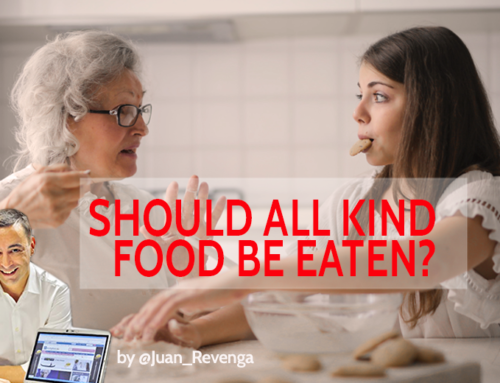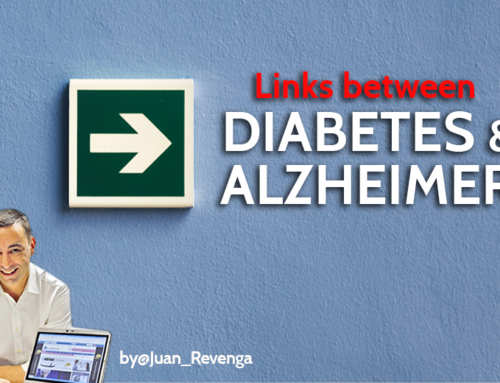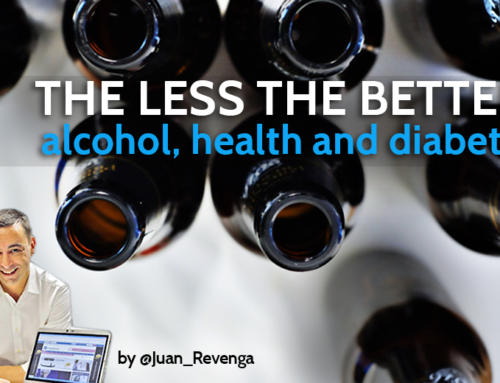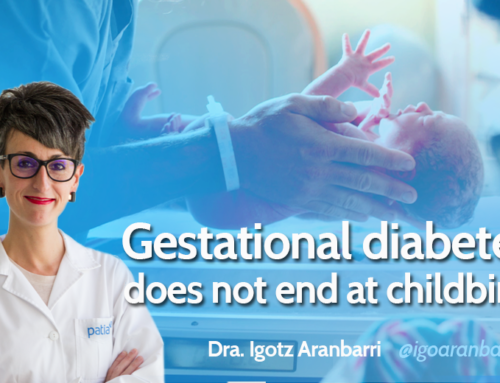Six diabetes and food Myths
There are no environments such as health and diet where myths spread like wildfire. And in this area, slimming and diabetes stand out above.
By Juan Revenga

It is terrible. In a world driven by aesthetics, health is second. There is no way to understand the lack of awareness regarding the impact of diabetes worldwide. A disease that has grown in the last decades like no other has ever done. And it happens despite it is a metabolic disease, non-transmissible (or not contagiable). That means, a health situation earns on your own. Yes, it is true, often conditioned by circumstances (available food, work conditions, not to mention genetic predisposition, etc) in which patient has little room for maneuver, especially living unnoticed of those circumstances and its risks.
Thus, it is enough to recall the figures of this growth. That is its prevalence and incidence … yesterday and today:
- The number of people with diabetes has risen from 108 million in 1980 to 422 million in 2014
- The global prevalence of diabetes among adults over 18 years of age has risen from 4.7 in 1980 to 8.5 in 2014
- In 2012 an estimate of 1.5 million deaths were directly caused by diabetes and another 2.2 million deaths were attributable to high blood glucose.
- Almost half of all deaths attributable to high blood glucose occur before the age of 70 years. WHO projects that diabetes will be the 7th leading cause of death in 2030
- Diabetes can be treated and its consequences avoided of delayed with diet, physical activity, medication and regular screening and treatment for complications.
In this given situation, it is not surprise the rise of myths, legends, miracle solutions and other tales that are either anchored in the past or trying to make profit out of this situation. In this post, we are going to see a substantial chunk of this mermaid songs.
Type 2 diabetes is mild
Well, this depend a lot of what each of us understand as mild. Thus, just to put some information on the table, and later everyone makes itself bottom line, type 2 diabetes causes more deaths than breast cancer and AIDS together; besides, 2 out of 3 diabetic persons die of heart disease or stroke.
Diabetes is contagious
No, it is not. Diabetes is categorized as being non-communicable illness. The only way diabetes can be passed on is from parents to their own children, but even this, is only a genetic likelihood of diabetes, and not the condition itself. There may be genetic predisposition and it is important to underline, due to diet and physical activity, that is everyone lifestyle what mainly condition diabetes debut.
Macronutrients, proportions and close (and nonsense) quantifications

I don´t know what you have heard (even from your GP or endocrine), but for the treatment and prevention of diabetes there is no an ideal proportion of established macronutrients. Yes, I know that the famous 55-30-15 (ideal percentages of calories from carbohydrates, fats and proteins) is a classic, both for general populations and for patients with diabetes. But no, we talk deeply about it in this post: up to date, the current scientific evidence regarding the ideal percentages of macronutrients in the diet of a person with diabetes does not have sense. Instead, we should pay attention to the words of Dr. Dariush Mozaffarian (Friedman School of Nutrition Science and Policy, Tufts University, Boston) in his The Lancet article “Saturated fatty acids and type 2 diabetes: more evidence to re-invent dietary guidelines: “We need to move away from unhelpful classifications and policies based on crude groupings of merely chemically related nutrients (total saturated fat) and their predicted or postulated effects on risk—which, in addition to scientific dubiousness, create confusion for consumers and opportunities for manipulation by industry—and towards food-based guidelines that mainly consider prospective evidence for effects on clinical endpoints.”
That is, if you want a translation, advice to follow a diet based on food, not on nutrients or calories. Somehow, following the scheme that we tell you in this other article.
With diabetes, you should restrict fruit, because of its sugar
False. There is absolute unanimity by medical and health associations to promote the consumption of fruit for preventing and reduce the risk of metabolic complications (obesity, diabetes, cardiovascular diseases and so on). It is true that a diabetic patient should keep an eye on the amount of carbohydrates, but no, the consumption of fruit shouldn´t be banish at all. On the contrary, we already talk about the advantages of fruit consumption in this link.
“Diabetic” food is good for this group
 Sorry but no. Well, nothing to be sorry about, except for the exceptional marketing exercise done by processed food companies to persuade, against independent recommendations, diabetic people to consume “diabetic food” as a valid option.
Sorry but no. Well, nothing to be sorry about, except for the exceptional marketing exercise done by processed food companies to persuade, against independent recommendations, diabetic people to consume “diabetic food” as a valid option.
Almost every scientific association rejects the use of “diabetic food”, even more since it is advertised as “healthy” and may contribute to abuse it and therefore become harmful.
Such is said in the last published Clinical Guideline “Type 2 diabetes in adults: management”, by NICE (the National Institute for Health and Care Excellence) “Discourage the use of food marketed specifically for people with diabetes” (page 14). Something that has been said since 2009. The same way ADA (American Diabetes Association) says in its page on the most frequent diabetes myths that “a healthy meal plan for people with diabetes is generally the same as a healthy eating for anyone (…) “Diabetic” foods generally offer no special benefit. Most of them still raise blood glucose levels, are usually more expensive and can also have a laxative effect if they contain sugar alcohols.”
There is a cure for diabetes
Someday may be a cure for diabetes, but no yet. Whether someone tells you that there is, run far away from him. The truth is that currently there is no cure. We talked deeply about this in this post, but we must hold on with hopeful expectations and we will see how it ends up.
Latest posts by Juan Revenga Frauca (see all)
- Obesity recognized as a chronic disease - 13 October, 2021
- Who said you have to eat everything? - 7 October, 2021
- Diabetes and Alzheimer - 29 January, 2021



